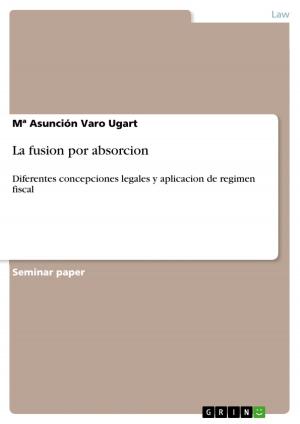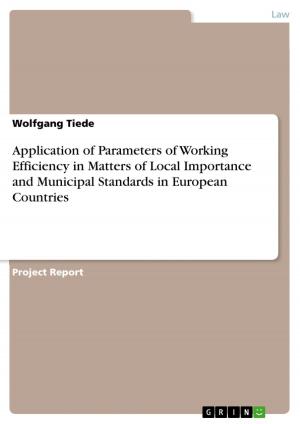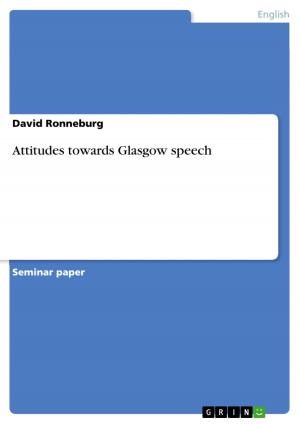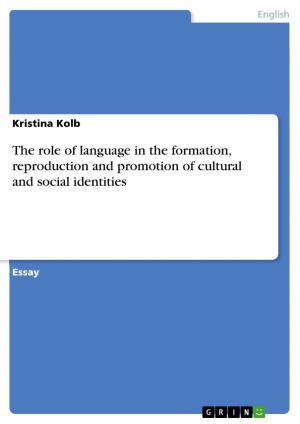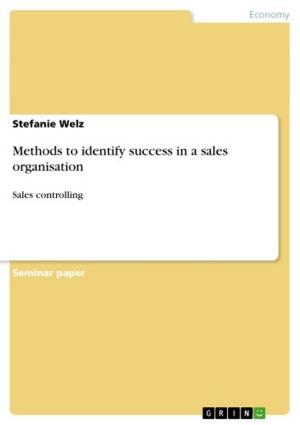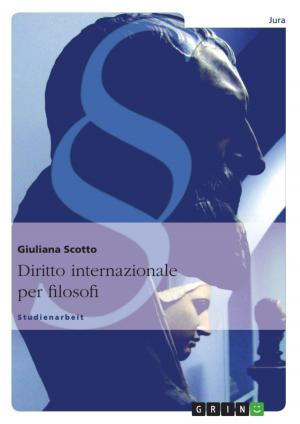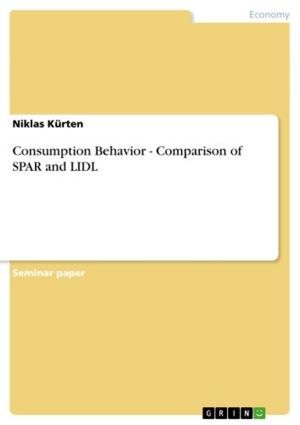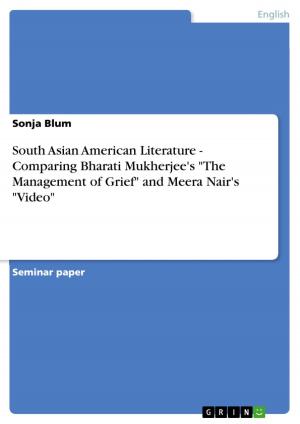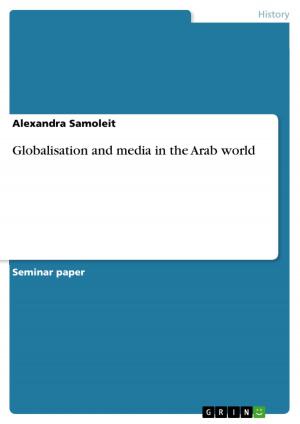Water & Sanitation Knowledge Management in Rural Cameroon
Mobilising knowledge for sustainable development
Nonfiction, Social & Cultural Studies, Social Science| Author: | Linus Elangwe | ISBN: | 9783656176626 |
| Publisher: | GRIN Publishing | Publication: | April 24, 2012 |
| Imprint: | GRIN Publishing | Language: | English |
| Author: | Linus Elangwe |
| ISBN: | 9783656176626 |
| Publisher: | GRIN Publishing |
| Publication: | April 24, 2012 |
| Imprint: | GRIN Publishing |
| Language: | English |
Master's Thesis from the year 2010 in the subject Politics - International Politics - Topic: Development Politics, University of Sussex (Institute of Development Studies), language: English, abstract: The purpose of this study is to move beyond conventional thinking on rural water (and sanitation) infrastructure and resource management. The study acknowledges the existence of other water management and sanitation tools but it engages its argument from a knowledge management perspective. In most rural areas, water and sanitation projects have been implemented and community members only enjoy these facilities for a short time. Why? The reason is simple. Most donors and governments are often concerned with the specificity of their projects/programmes, long-term sustainability is rarely guaranteed and those who are left to manage these water systems lack the necessary capacities (skills & knowledge). Consequently, after few years of implementation most water supply are been closed down while sanitation structures are fast deteriorating due to poor management and lack of post-project government/donor support. This study on water and sanitation knowledge management (WKM) highlights some of these pitfalls in rural Cameroon; it acknowledges the fact that knowledge is always incomplete and that rural water supply systems are in themselves a complex and dynamic system involving risks and uncertainties. The study takes a look at the recent literatures on water resource management and rural water supply systems and the range of technological and institutional approaches that have been applied in the past years in an attempt to increase access and/or reduce inequality. By examining key reasons why the resource has proven so difficult to manage, I came to the conclusion that, in many cases, the most promising solutions may lie outside highly conventional technological and institutional approaches. The WKM model focuses on enhancing the generation, flow, and use of knowledge and information to enable communities achieve better results or quality services. This study is based on the need to build the capacity of - and also utilize the various skills and knowledge available within - rural communities to support decision-making processes on how to better manage, operate and maintain water supply systems as well as promote better sanitation and hygiene.
Master's Thesis from the year 2010 in the subject Politics - International Politics - Topic: Development Politics, University of Sussex (Institute of Development Studies), language: English, abstract: The purpose of this study is to move beyond conventional thinking on rural water (and sanitation) infrastructure and resource management. The study acknowledges the existence of other water management and sanitation tools but it engages its argument from a knowledge management perspective. In most rural areas, water and sanitation projects have been implemented and community members only enjoy these facilities for a short time. Why? The reason is simple. Most donors and governments are often concerned with the specificity of their projects/programmes, long-term sustainability is rarely guaranteed and those who are left to manage these water systems lack the necessary capacities (skills & knowledge). Consequently, after few years of implementation most water supply are been closed down while sanitation structures are fast deteriorating due to poor management and lack of post-project government/donor support. This study on water and sanitation knowledge management (WKM) highlights some of these pitfalls in rural Cameroon; it acknowledges the fact that knowledge is always incomplete and that rural water supply systems are in themselves a complex and dynamic system involving risks and uncertainties. The study takes a look at the recent literatures on water resource management and rural water supply systems and the range of technological and institutional approaches that have been applied in the past years in an attempt to increase access and/or reduce inequality. By examining key reasons why the resource has proven so difficult to manage, I came to the conclusion that, in many cases, the most promising solutions may lie outside highly conventional technological and institutional approaches. The WKM model focuses on enhancing the generation, flow, and use of knowledge and information to enable communities achieve better results or quality services. This study is based on the need to build the capacity of - and also utilize the various skills and knowledge available within - rural communities to support decision-making processes on how to better manage, operate and maintain water supply systems as well as promote better sanitation and hygiene.

